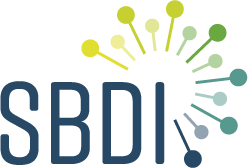What is GBIF
GBIF—the Global Biodiversity Information Facility—is an international network and data infrastructure funded by the world's governments and aimed at providing anyone, anywhere, open access to data about all types of life on Earth.

Coordinated through its Secretariat in Copenhagen, the GBIF network of participating countries and organizations, working through the participant nodes, provides data-holding institutions around the world with common standards, best practices and open-source tools enabling them to share information about where and when species have been recorded. This knowledge derives from many different kinds of sources, including everything from museum specimens collected in the 18th and 19th century to DNA barcodes and smartphone photos recorded in recent days and weeks.
The network draws these diverse data sources together through the use of data standards, including Darwin Core, which forms the basis for the bulk of GBIF.org’s index of hundreds of millions of species occurrence records. Publishers provide open access to their datasets using machine-readable Creative Commons license designations, allowing scientists, researchers and others to apply the data in about four peer-reviewed publications (along with more policy papers) every day. Many of these analyses—which cover topics from the impacts of climate change and the spread of invasive and alien pests to priorities for conservation, food security and human health—would not be possible without the data provided by the GBIF network.
Vision
A world in which the best possible biodiversity data underpins research, policy and decisions.
Mission
To mobilize the data, skills and technologies needed to make comprehensive biodiversity information freely available for science and decisions addressing biodiversity loss and sustainable development.




